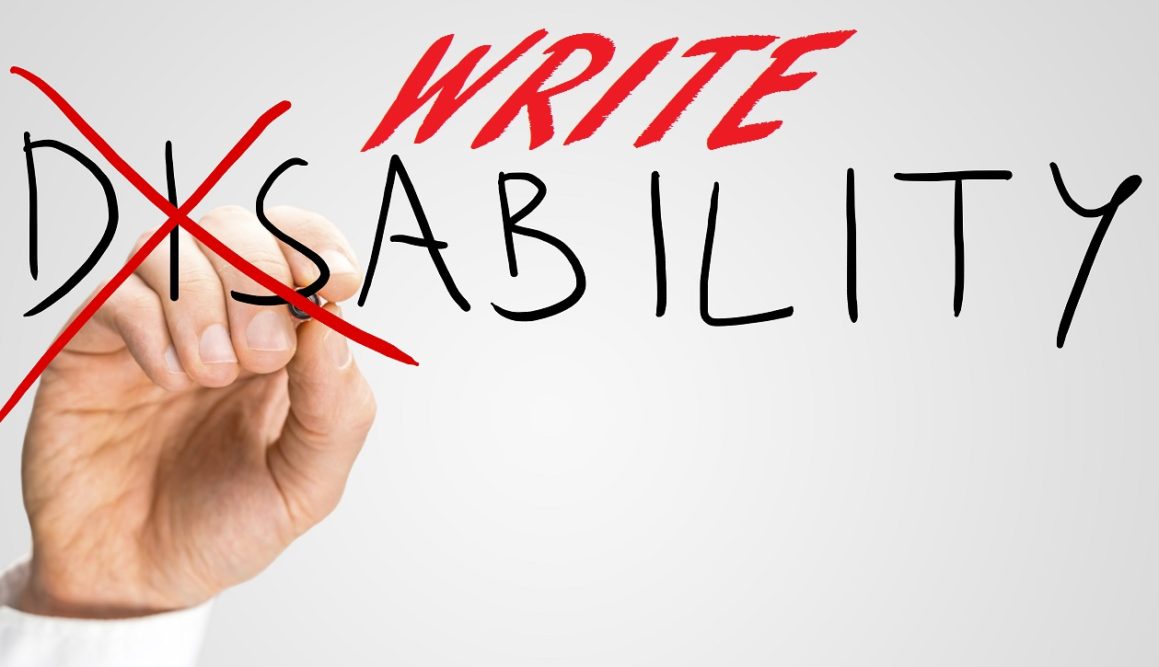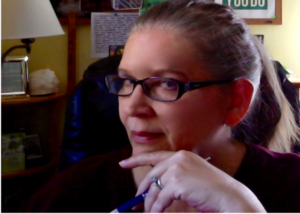The ninth annual World Autism Awareness Day is April 2, 2017, and April is Autism Awareness Month with the colorful puzzle piece ribbon becoming more familiar as its icon. Each year, autism organizations around the world recognize this day with events to raise funds and increase awareness.
I am pleased that I could ask John Elders Robison writer of articles, short stories, books, and the author of “look me in the eye, my life with asperger’s, and Switched On, A Memoir of Brain Change and Emotional Awakening” to share information with us about Asperger’s, a form of Autism.
Mr. Robison did not know there was a name for his condition until he was an adult. John maneuvered life before the age of forty knowing he was different, but not knowing why.
In my interview with John this month, I show the realistic view of one person’s experience with Asperger’s, as you will see in my questions and his answers to them. John speaks frankly, giving us a better understanding of how one Aspergian sees the world. John’s precise informational process gives us a glimpse into how he processes information in his answering the questions as I presented them to him.
John, what is Asperger’s?
Asperger’s is one of the conditions that make up the autism spectrum. It’s therefore a form of autism. People with Asperger’s tend to have clear logical speech but be somewhat oblivious to the non-verbal parts of communication – we may miss things like body language or subtle facial expressions. In the rest of this Q&A I refer to “autistic people” as opposed to Asperger people or Asperger’s because Asperger’s is just one of several words for autism. One person might be described as autistic, another as having autism, another PDD-NOS. They may all look and act the same and in that sense the different diagnostic labels are interchangeable.
Autism is characterized by language impairment or weak ability to read nonverbal cues or messages; restricted interests, obsessions, or unusual focus; or unusual patterns of speech or expression. But remember – “unusual” is only in the mind of a non-autistic observer. To us, we are normal and you typicals are the freaks. Many autistic people have medical challenges like anxiety, depression, epilepsy, intestinal distress, or sleep troubles.
Autistic people fall at all points on the IQ spectrum. The combination of autism and intellectual disability is particularly debilitating.
How is living with Asperger’s different than/from a person not living with Asperger’s?
A person not living with Asperger’s is, by definition, dead. That is what “not living” means, and it is a fundamentally different thing from living with Asperger’s. To the best of my knowledge dead people are indifferent to diagnostic terms we living people think are important.
Do you think living with Asperger’s affects what a person can, or cannot do in life? Why, or why not?
Autism is one of many things that can shape us. Autism certainly affects what we are good at or not good at, and so it may influence what we can or want to do. That said, there is no single answer to the question of how an individual may be affected.
Autistic people do lots of things – work with animals, be engineers, work in theatre or the arts, or even teach. That said, many of us are unemployed or underemployed thanks to disability. At the same time, some autistic people are extraordinarily successful.
Some people see autism as primarily a disability. Others (like me) see autism as a mix of disability and exceptionality. While there are some things I’m not so good at (like reading facial expressions) there are other things I’m exceptionally good at (like photography or automotive engineering) and I attribute both to autism.
What motivates you write despite any emotional challenges you face? Did your emotional challenges become the reason you felt you had to write?
I write articles and stories about cars because that’s what we do for work here. I tell stories about what we find and do and emotion hasn’t got much to do with it.
When I learned about autism in me, the knowledge was life-changing in a good way, and that inspired me to share my stories with other people, so in that sense I guess you could say the emotional challenges are a big reason why I write about autism and difference.
Can you tell us about your current writing project(s)?
I’ve just started to explore the question of whether some of the Polynesian navigators who helped colonize the Pacific islands over the past 3,000 years were autistic.
I’m also writing a story about the role of autistic people in the establishment of the Anglican church in colonial Virginia.
And our high school students are building a vintage Bentley Continental to race the Carrera Panamericana through Mexico, and I expect to be writing about that.
What’s your best advice for those who wish to write characters with Autism/Asperger’s in their books and stories?
If you are an autistic person yourself or have an autistic family member you should have some insight into the character. Otherwise, before writing about autism, ask an actual autistic person. There is a lot of misunderstand and wrong assumptions are the rule, not the exception.
And John’s writing life?
Mostly I write by typing on computer. As a result, my handwriting has deteriorated. To address that I bought a diary-type notebook and I’m writing in it often, by hand. There is a slight improvement but correction of that deficiency may take years, and I will never have penmanship to the standard set by our literate ancestors.
I write books and long articles upstairs in my library at home, or on the computer with the big monitor at my work. I am fortunate to own my workplace so I am free to write on “company time.”
I don’t really have a schedule. Sometimes I don’t do anything for a month and then I might write 20,000 words over a long-concentrated weekend.
Over four books I have generally beat the deadlines set by the publisher and I’ve been faster with my end of the edits than them, and I take that as evidence that the schedule is good enough.
For the past ten years, most of my writing has been done on Mac computers. I write short stories and such on a laptop but I prefer the big desktop monitor for editing and most other tasks because I can compare things side by side and it’s just bigger and clearer.
Whenever I have a new book released I get a new pen to sign copies for readers. Doing that is sort of a superstition, like believing your dog might roll over and die if you don’t give his left ear a quick tug on the way out the door. You can dismiss superstitions if you want, but after three or four dead dogs you start to question the wisdom of that thinking.
There are, of course, some people who don’t even have dogs and don’t care what pen they sign books with but I am not one of them.
For SWITCHED ON I am using an ST Dupont fountain pen, but as I said, the writing instrument changes with some frequency. As for paper – when you sign books you really see a difference in the quality of papers used in hardcover and paperback books. Buy hardcovers if you want your books to last!
As for dogs – we have two – an Imperial Chinese War Pug, and a Bull Dog.
What advice can you give to other writers who may have a disability, or a challenge who aren’t sure if they can share their stories, or write a book?
Millions of people have a desire to share their stories. Very few of those stories end up published by major houses and of those even fewer are widely read. But not every storyteller seeks a bestseller. Some write stories for their families. Some might write for a local autism support group. Others dream of having their story self-published or printed by a small press. Others write for their own therapy.
Think about what you want; what is the objective of your writing? Ask yourself if the story is truly unique, and who would want to read it, and why. Remember that the writing it what makes or breaks it; a good writer can make a seemingly ordinary story into a page turner.
You just never know what stories will be popular or well received, and which won’t.
My first editor – Rachel Klayman at Random House – once told me publishing is a world of broken dreams and I think that’s true. Books never sell to publishers for as much as you hope. They don’t get bought by the public in the quantities you or the publisher hopes for. And often the critics are harsh. The rewards are few and the criticisms many. But still people do it.
Writers always seem to want to know how other writer’s write, edit, and rewrite. What is your style of editing your work?
I usually write something, set it aside, and then go back to it and look at it from the remove of a bit of time. Also, my wife reads what I write, and sometimes other people. They comment and I make revisions. My agent reads initial drafts before we turn them in, but once the edit process starts with the publisher it’s just me and them, back and forth through the various steps.
Is there anything else you’d like to share with readers at AlmostAnAuthor?
Establish yourself in some good and stable line of work that affords you time to write, while also providing a steady living. If you are lucky you will even be able to write about your work one day.
Kathryn M. B. Johnson
I write with, and for, multiple disabilities. I’m working on a novel, and love writing essays. I live amidst the beautiful Shenandoah Valley in Virginia. I started making squiggles at age three on pieces of paper. I kept my “writing” in grandma’s black snap-top pocketbook. In second-grade, I wrote stories my teacher read at rest time. I’m endeared to No.2 pencils. You can connect with me on Facebook, Twitter, or my website at kathrynmbjohnson.com.






No Comments